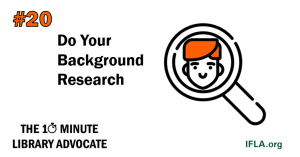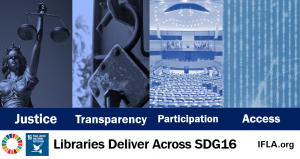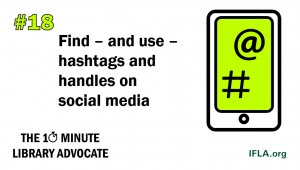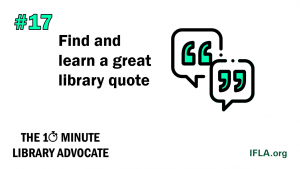At the end of a recent WIPO meeting, a suggestion was made that the Marrakesh Treaty – which removes the need to seek permission in order to make or share accessible format copies of books – was a response to a market failure.
Market failures happen when the impacts of a decision (to do something or not) are not fully taken into account by the person making it. These impacts are known as ‘externalities’.
Examples include pollution (which mainly affects people other than the ones responsible), or street lighting (which benefits everyone who passes by, regardless of whether they have paid taxes for it). These are ‘negative’ and ‘positive’ externalities respectively.
When there are externalities, a producer will make more, or less, of something than is optimal for society as a whole.
Talking about the Marrakesh Treaty as a market failure raises some interesting questions about the way copyright works.
All forms of intellectual property are, arguably, a response to another market failure. Traditionally, in the case of copyright, if an author and publisher have invested money in order to produce a book, but then anyone can copy and sell it for less, there is an externality.
The original author is not able to benefit from all of the positives associated with the book, and so may not produce again.
Copyright – under the ‘orthodox’ model of revenue generation that dominates today – helps correct this by giving exclusive rights to the author or their publisher.
However, as in the case of the Marrakesh Treaty, it is clear that the rights given by copyright can create their own problems. In effect, by leaving almost all decisions about who can do what, with what, in the hands of the rightholder, it places them in the same position as the producer mentioned above.
While Marrakesh did deal with a specific population – albeit one numbering into the hundreds of millions around the world – this is not to say that market failures do not exist elsewhere. This blog looks at four areas where they may appear and affect the work of libraries, and underlines how exceptions to copyright can offer a response.
Market Failures Linked to Types of User
This was very much the case with the Marrakesh Treaty, where the limited buying power of people with print disabilities in many parts of the world made them less interesting as a market.
This is not because there was not a value to people with print disabilities from gaining access. Indeed, for them, the possibility to read and enjoy works can lead not only to greater well-being, but also to new opportunities.
The same can be said for children and young families for example. Children can have a huge appetite for books, and most parents are unable to pay for all of the books they will read.
Publishers, however, cannot lower prices for individuals or groups without this threatening their profitability. We risk a situation of many children being left with only limited access to books – including arguably those who need it most.
The possibility to borrow books from the library not only ensures demand is met today, without costing sales, but also helps build the book consumers of the future.
Market Failures Linked to Types of Material
A second failure is linked to types of material. Many of the works held by libraries are ‘orphan’ – i.e. the author is either not known, or not traceable.
This is a common phenomenon, given the very long duration of copyright, as well as the fact that copyright also applies to works which were never made for commercial purposes (and so where fewer records have been kept).
The problem comes from the fact that by default, copyright locks these works away, as the (unknown) author is assumed not to have agreed to their work being used.
The consequence is that this leaves large parts of library collections locked away, despite a low risk of objections to their being shared online (indeed, many people who do come back are happy about it), and lost potential value for researchers and historians.
Market Failures Linked to Type of Use
A third category of market failure is linked to the type of use that is planned. This is an issue because copyright not only governs who can sell books and other works, but also what can be done with them afterwards.
There are arguably certain activities – quotation, basic educational uses, preservation – which are of clear public benefit. However, the last two of these are, by default, also left in the hands of rightholders.
To take the example of preservation, the benefits of this may only be felt in many years to come, or if something deeply uncertain, such as a disaster, strikes.
Yet this is not something that can easily be translated into money, or something that the rightholder taking the decision will necessarily take into account. Indeed, they may logically focus more on the idea of a lost sale (however unlikely this is), or the risk of hacking or loss. Again, by default, preservation is not permitted.
In effect, if the right to preserve works effectively is not covered in law, there is a real risk of books and other works being lost.
Market Failures Linked to Lack of Coordination
The examples of given up to here have been more focused on the decisions taken by rightholders, and represent market failures. But there are also failures associated with policy-making around copyright.
This is because when policies are decided – and in particular, when copyright exceptions are designed – the focus is on domestic interests. There is little if any consideration of how the choices make will affect researchers, teachers and libraries working across borders.
It seems unlikely that anyone would want to prevent libraries from working together across borders in order to carry out preservation, or to share works in a fair and regulated way. These activities are just too easily forgotten.
If these interests were taken into account, there would be a far stronger argument for convergence in copyright exceptions in order to support research, heritage and learning.
As highlighted in the recent WIPO meeting, the Marrakesh Treaty is a response to a market failure – one that ensures that the wider interests of society can be promoted within the context of the copyright system. It is a means of dealing with a problem created by the way copyright works, with exclusive rights by default, and little consideration for cross-border working.
These failures are not the fault of rightholders either, who are acting rationally in the circumstances. They have a duty to maximise revenues in order to support themselves or their authors (and shareholders as appropriate), and are not being deliberately unhelpful.
Such failures can be addressed through exceptions to copyright. It is time to do so, both at the national and global level.


 Advocacy is about getting attention.
Advocacy is about getting attention. When you advocate, it’s important to choose your words.
When you advocate, it’s important to choose your words.